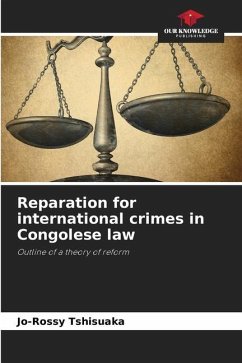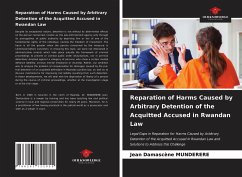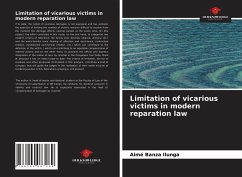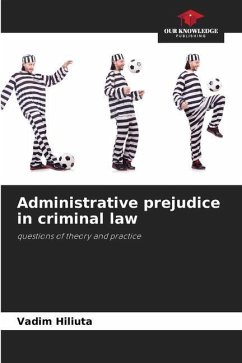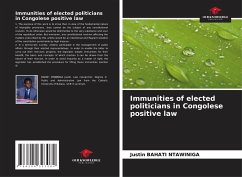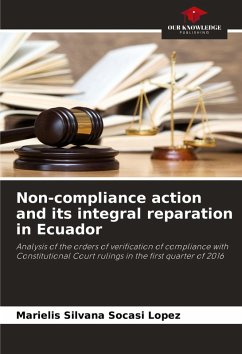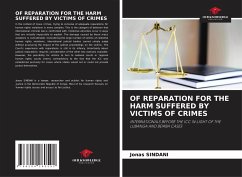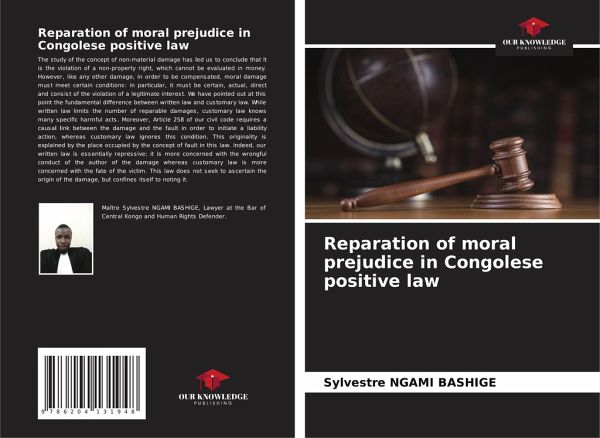
Reparation of moral prejudice in Congolese positive law
Versandkostenfrei!
Versandfertig in 6-10 Tagen
27,99 €
inkl. MwSt.

PAYBACK Punkte
14 °P sammeln!
The study of the concept of non-material damage has led us to conclude that it is the violation of a non-property right, which cannot be evaluated in money. However, like any other damage, in order to be compensated, moral damage must meet certain conditions: in particular, it must be certain, actual, direct and consist of the violation of a legitimate interest. We have pointed out at this point the fundamental difference between written law and customary law. While written law limits the number of reparable damages, customary law knows many specific harmful acts. Moreover, Article 258 of our ...
The study of the concept of non-material damage has led us to conclude that it is the violation of a non-property right, which cannot be evaluated in money. However, like any other damage, in order to be compensated, moral damage must meet certain conditions: in particular, it must be certain, actual, direct and consist of the violation of a legitimate interest. We have pointed out at this point the fundamental difference between written law and customary law. While written law limits the number of reparable damages, customary law knows many specific harmful acts. Moreover, Article 258 of our civil code requires a causal link between the damage and the fault in order to initiate a liability action, whereas customary law ignores this condition. This originality is explained by the place occupied by the concept of fault in this law. Indeed, our written law is essentially repressive; it is more concerned with the wrongful conduct of the author of the damage whereas customary law is more concerned with the fate of the victim. This law does not seek to ascertain the origin of the damage, but confines itself to noting it.



